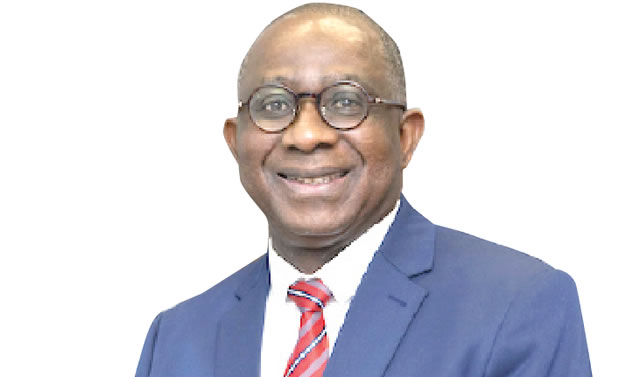The Senior Special Adviser to the President of the African Development Bank, Prof. Banji Oyelaran-Oyeyinka, has called for the urgent rebuilding of Nigeria’s industrial capacity and knowledge institutions, describing the country as a “crippled giant” in dire need of transformation.
Speaking at the 55th anniversary of the Department of Chemical Engineering, Obafemi Awolowo University (OAU), Ile-Ife, Oyelaran-Oyeyinka delivered a keynote address titled “Rebuilding the Broken Wall: Reviving National Capabilities for Economic Development.” In his remarks, shared with The PUNCH on Saturday, he lamented Nigeria’s decline in economic and knowledge-driven progress, referencing insights from his recent book, Reversal of Fortune.
“Why have world-class institutions like OAU and its Chemical Engineering Department, once beacons of excellence, fallen into such disrepair?” he asked, highlighting how the “walls” of industry, academia, and society have broken down.
He traced Nigeria’s decline from industrial promise to stagnation, contrasting it with Asia’s rise. Noting that in 1980, Nigeria’s GDP per capita was six times China’s, he observed that China’s 2024 exports ($3.58 trillion) now exceed Africa’s total GDP ($3.4 trillion). He also cited Korea’s transformation from poverty to industrial powerhouse, attributing their success to building technological, organisational, and human capabilities.
As an example of Nigeria’s industrial failures, Oyelaran-Oyeyinka pointed to the Ajaokuta Steel Complex, which has consumed over $5 billion without completion, forcing Nigeria to spend billions annually on steel imports.
He also addressed the disconnect between universities and industry needs, blaming weak legislation, corruption, and lack of accountability for undermining research institutions. “We built ivory towers instead of bridges to solve real-world problems,” he said.
Quoting Chief Obafemi Awolowo’s 1974 UNIFE Convocation Lecture, he stressed the power of human capital: “Man is the sole dynamic in nature. The healthier his body and the more educated his mind, the more efficient he becomes as a producer and consumer.”
To rebuild, he urged targeted investment in factory-level capabilities, especially in agribusiness and food processing, and called for export-led manufacturing based on Asia’s success stories. He highlighted Africa’s potential, noting it holds 65% of the world’s uncultivated arable land and that the food and agribusiness market could reach $1 trillion by 2030.
He identified four strategic priorities to revive Nigeria’s economy:
-
Invest in capabilities at the factory level, especially agribusiness.
-
Promote manufacturing exports to reduce reliance on raw materials.
-
Sustain investment in knowledge-building that links education with industry.
-
Rebuild universities and research centres through meaningful government and private sector support.
He stressed that strong leadership is critical, blaming Nigeria’s elites for prioritising private gain over public interest. “Nigeria is a ‘crippled giant’ today because its leaders have failed to serve the common good,” he said.
Oyelaran-Oyeyinka challenged alumni, faculty, and policymakers to restore OAU to a “place of excellence, joyful rigour, and creativity,” urging them to reject hopelessness and chart a clear roadmap for Nigeria’s industrial and intellectual revival.
Dr. Aderemi Adebowale, a 1985 alumnus of the department, described the lecture as “a masterclass on where we went wrong—and how we can still make it right.”
ADEOLA KUNLE







No comments:
Post a Comment